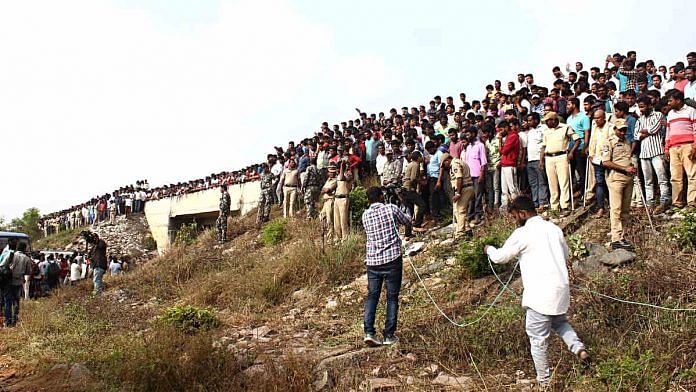Showing the finger
Varun Gandhi | BJP MP
The Economic Times
Gandhi seeks greater priority to development indicators, be it social or environmental, in gross domestic product (GDP) assessments. He begins with an anecdote of how GDP was conceptualised in the 17th century in England to conclude that today’s measures of economic growth fail to distinguish between “welfare-enhancing and welfare-reducing [economic] activities”.
Gandhi first mentions gross national happiness (GNH) that looks at “comprehensive wealth” and provides deeper insight into economic well-being. In this vein, India needs to change its approach to GDP so that it accounts for “how much incremental social and natural capital… economic activities build”, he writes. A metric for this can be genuine progress indicator (GPI) which considers factors like inequality, pollution costs and underemployment, he writes.
A reevaluation like this could help identify “market failures hidden by the overlying GDP numbers, and then instigate government action”. With the help of Unified Payments Interface and Ru-Pay, “every transaction [can also be tracked] on the basis of the social good created”, he adds.
A Data Big Bang
Arvind Subramanian | Former Chief Economic Adviser, Government of India
Josh Felman | Former IMF resident representative to India
The Indian Express
Subramanian and Felman discuss the significance of reliable and accurate data towards policy making.
Re-booting data systems in the real, fiscal and financial sectors is the government’s “immediate” task for which a committee should be set up and headed by someone like Nobel Prize winner Professor Abhijit Banerjee, they write. The committee should focus on improving data collection and statistical methodology, and “identify the problems in the GDP estimates and the PLFS/NSSO surveys”, explain the authors.
They also suggest a “sound” fiscal accounting system be envisaged in the next budget. “As proposed unanimously by the NK Singh FRBM Review Committee”, a Fiscal Council should be set up to oversee accounting and ensure budget projections are “realistic”, they add.
It’s also time for a second Asset Quality Review (AQR) that could be led by a former Reserve Bank of India governor. Assessing NBFCs and banks, AQR can ensure transparency in stressed assets and pinpoint the “precise magnitude and sectoral nature of the problem”, they conclude.
Will the mother of all asset price bubbles burst in 2020?
Anantha Nageswaran | Dean, IFMR Graduate School of Business, Krea University
Mint
Writing about the bubble in asset prices, Nageswaran begins his piece by explaining the tool used in “targeting… interest rates at the long-end of the yield curve” — US Federal Reserve’s quantitative easing (QE) policy.
Stock investors have been “grateful” to QE as it “helped stocks defy fundamentals… in the run-up to the crashes of 2000 and 2008″. However, Nageswaran warns that “negative yields on debt in the developed world are flashing warning signs for the global economy”.
Corporate profits in the US showed an “anaemic [year-on-year] growth” of 0.4 per cent in the calendar year third-quarter estimate. However, “American stock indices have remained unperturbed”, he writes. Stock markets “continue to scale new heights” and asset-holders become wealthier as “existing assets become expensive”.
“Many commentators think that bonds are in a price bubble and stocks are not,” adds Nageswaran. He quotes Blackstone chief investment strategist Joseph Zidle to say negative yields on debt is the “mother of all bubbles”. Nearly $13 trillion of sovereign debt is currently trading at negative yields.
“Seemingly unrelated and uncorrelated risks” can combine to “wreck the global economy this time”, he adds.
The legal process is long and arduous. But it is essential to provide justice
Amit Anand Tiwari | Supreme Court advocate
Hindustan Times
Tiwari has a few comments on the significance of Telangana police’s “encounter” of the four accused in the Hyderabad rape and murder case.
First, on-the-spot justice is comparable to mob lynching. Second, such actions pave the way to allow the police to get away with shoddy investigation as “the pressure of quick resolution of crime often leads to police to act irrationally, and use its force in a manner contrary to established legal rules”, writes Tiwari.
He asserts that in most such “encounters”, the accused are from underprivileged sections of society and the doubt always remains whether they actually committed the crime. Tiwari concludes by quoting Mahatma Gandhi: “The ends do not justify the means.”
A growing blot on the criminal justice system
Faizan Mustafa | Vice-Chancellor, NALSAR University of Law, Hyderabad
The Hindu
Mustafa writes that the Indian criminal justice system “increasingly reflects the idea of power rather than justice”. Pointing to a change in the media perception of “encounters”, where once they were criticised but are hailed now, Mustafa asks, “Is India moving from rule of law to rule by gun?” Delays in rape cases are a cause of concern, but “a Hyderabad-like solution is absolutely out of the question”, he writes.
Explaining the notorious Punjab and Andhra Pradesh model, Mustafa says, “Our legal system does not permit police officers to kill an accused merely because he is a dreaded criminal, rapist or terrorist.”
To deal with these challenges, Mustafa recommends that senior judges should be appointed to fast track courts, adjournments disallowed and the matter be referred straight to the high courts.
(Edited by Amit Upadhyaya)



